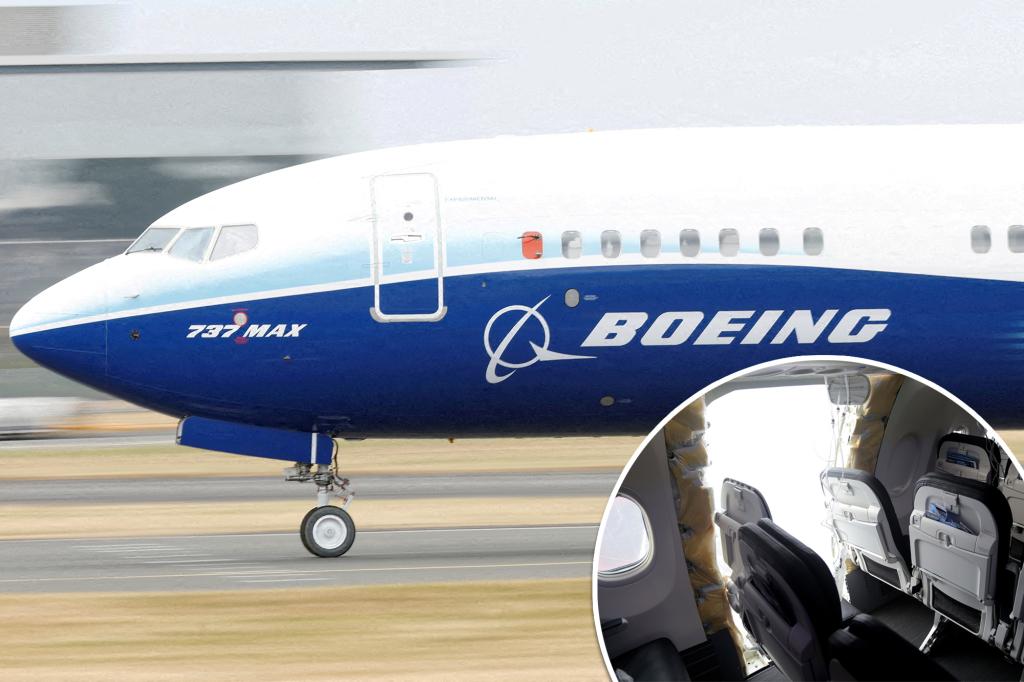New research has revealed that nearly half of Generation Z (Gen Z) individuals are now afraid to fly due to safety concerns surrounding Boeing’s 737 aircraft. A survey conducted by JW Surety Bonds gathered information from 1,000 Americans, including 230 Gen Z members, with 49% of them expressing fear of boarding a plane. This fear seems to be particularly high among Gen Z, with Merritt Ryan from JW Surety Bonds noting that these youngsters feel more frightened by flying than individuals from any other generation. This fear has been exacerbated by the COVID-19 pandemic, which has heightened anxieties and led to a lack of trust in societal institutions and loved ones at a crucial time in their development.
New York City therapist Lesley Koeppel suggests that the pandemic has played a significant role in increasing anxieties among Gen Z individuals, as they lost the ability to trust due to inconsistencies and mixed messages from various sources. Parents passed on their own anxieties to their children, while conflicting information on topics such as mask-wearing, vaccinations, and touching packages added to the confusion. This lack of trust in reliable sources has left Gen Z feeling uncertain and anxious, hindering their ability to place faith in institutions like Boeing, airlines, and the Federal Aviation Authority.
The fear of flying among Gen Z is not exclusive to this generation, as a significant percentage of Baby Boomers and Millennials also express concerns about flying amidst the FAA’s ongoing investigation of Boeing. The survey by JW Surety Bonds found that 40% of Baby Boomers and 39% of Millennials were worried about flying, while Gen X seemed to be the least bothered by Boeing’s issues, with 38% stating they are now afraid of taking to the skies. The recent incident involving a cabin panel blowing off an Alaska Airlines flight further contributes to the anxiety surrounding air travel.
Lockdown orders during the pandemic provided Gen Z individuals with an excuse to stay indoors and avoid facing their fears, resulting in a lack of exposure therapy that could help alleviate anxiety. Exposure therapy is crucial in treating anxiety, as avoiding fears can allow them to take hold and worsen over time. With a year of limited travel and exposure to potential fears due to the lockdown, Gen Z individuals may have had less opportunity to confront their fears and build resilience against them. This lack of exposure may have intensified their anxiety about flying and other fears.
The COVID-19 pandemic has left Gen Z individuals with severe trust issues, making it difficult for them to have faith in institutions and organizations like Boeing and the airline industry. The constant inconsistencies in information and messaging have left Gen Z feeling uncertain and anxious, hindering their ability to trust the information they receive and the entities responsible for their safety. This lack of trust may contribute to the high levels of fear surrounding flying and may require targeted interventions to help Gen Z individuals overcome their anxieties and fears.
In conclusion, the fear of flying among Gen Z individuals due to safety concerns surrounding Boeing’s 737 aircraft is a significant issue that has been exacerbated by the COVID-19 pandemic. The lack of trust in societal institutions and conflicting information from various sources have left Gen Z feeling anxious and uncertain, hindering their ability to board a plane with confidence. Targeted interventions and exposure therapy may be necessary to help Gen Z individuals confront their fears and build resilience against anxiety surrounding air travel. Additionally, it is essential for institutions like Boeing and the airline industry to prioritize safety and rebuild trust among passengers, particularly among the younger generation.


